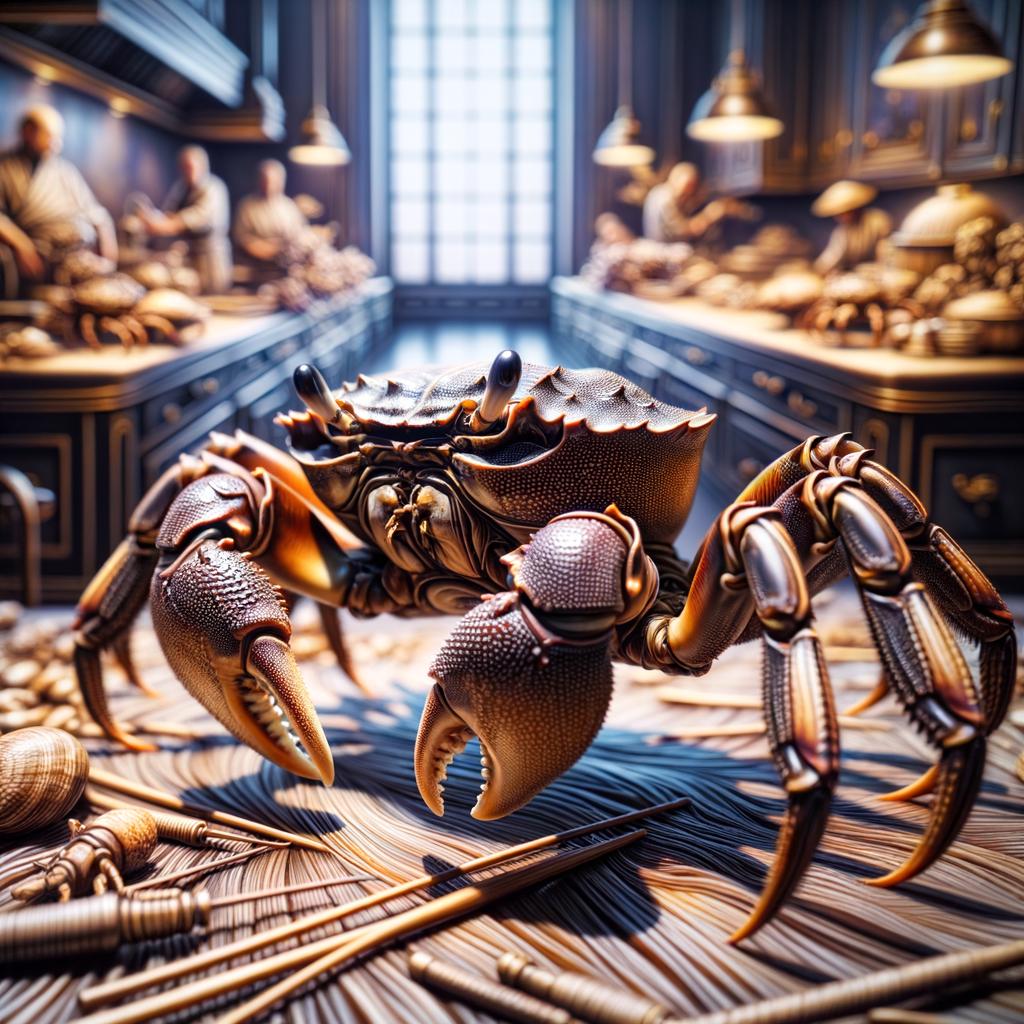Mud Crabs

Description Meet the mud crab, a prized culinary delight from the brackish mudflats and mangroves of the Indo-Pacific region. These crustaceans are a sight to behold, with their robust, box-like bodies cloaked in a rich, dark green exoskeleton that turns a vibrant orange-red when cooked. Their formidable claws, a testament to their strength, are the source of their succulent meat. The mud crab's flavor profile is a delicate balance of sweet and briny, with a firm yet flaky texture that sets it apart from its crustacean cousins. Its unique characteristic lies in its ability to adapt to various environments, from freshwater to saltwater, making them a versatile creature both in and out of the kitchen.
Primary Uses Mud crabs are a culinary superstar in many Asian cuisines, particularly in Chinese, Thai, and Filipino dishes. They are commonly steamed to preserve their natural sweetness, stir-fried with black pepper or chili sauce for a spicy kick, or used in soups and curries for a hearty meal. In non-culinary uses, mud crabs play a significant role in maintaining the ecosystem of their habitats. They are known to be effective bio-indicators, reflecting the health of the ecosystems they inhabit.
History The history of the mud crab is as rich and intriguing as its flavor. Ancient texts and archaeological findings suggest that these crabs have been a part of human diet for thousands of years. In traditional Chinese culture, they are often associated with prosperity and good fortune, making them a popular dish during festive occasions. Over time, the popularity of mud crabs has spread globally, with their sweet, succulent meat becoming a sought-after delicacy in fine dining establishments worldwide. There's a romantic notion that surrounds the catching of mud crabs, often involving moonlit nights and brave fishermen battling the tides.
Nutritional Information Mud crabs are not just delicious, but also packed with nutritional benefits. They are rich in protein, providing essential amino acids for muscle growth and repair. They also contain significant amounts of omega-3 fatty acids, beneficial for heart health. Additionally, they are a good source of minerals like zinc, selenium, and copper, which play vital roles in our immune system. Compared to other crustaceans, mud crabs have a lower fat content, making them a healthier choice for seafood lovers. However, like other shellfish, they can be high in cholesterol, so moderation is key. The story of the mud crab is a testament to the beauty of nature's bounty, a creature that thrives in the wild, graces our tables, and nourishes our bodies.

